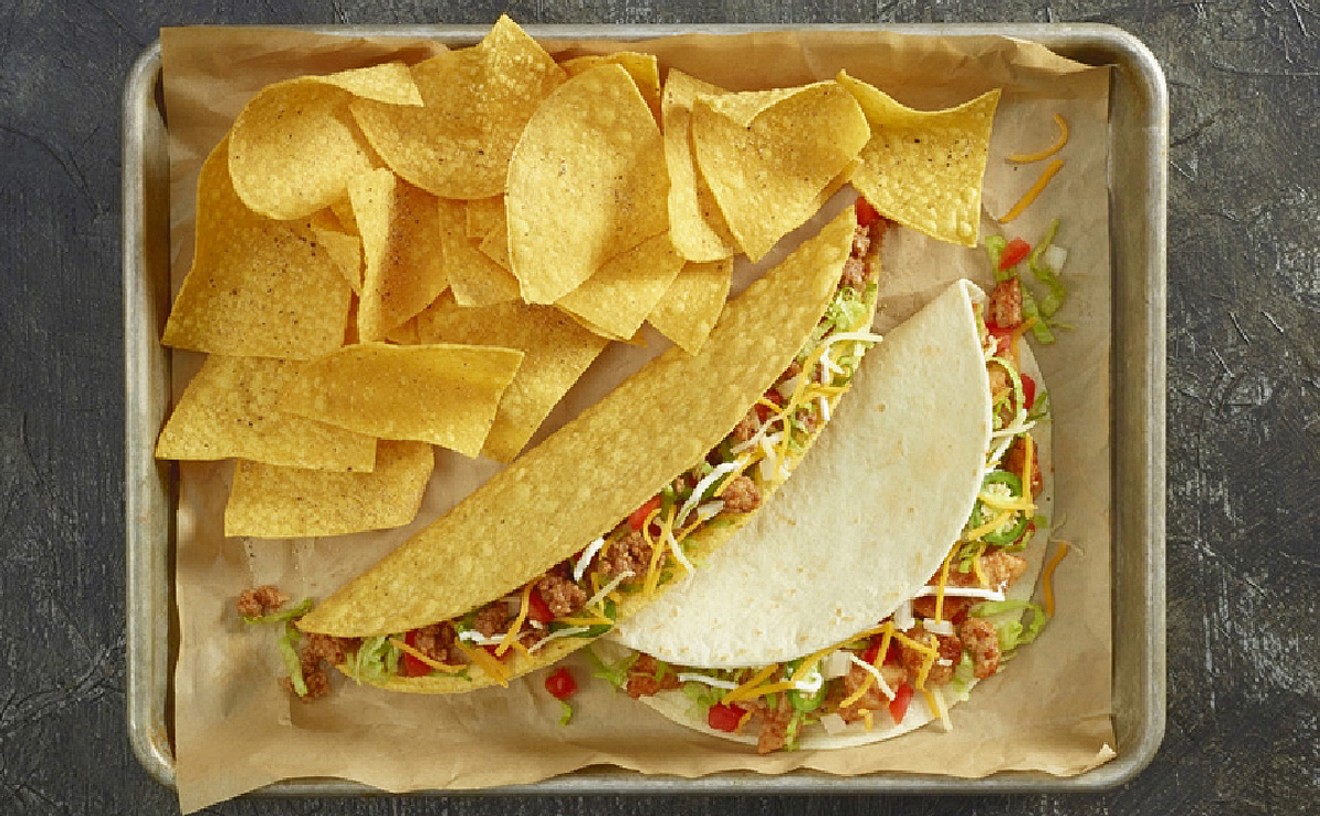How could the same man responsible for 1983's soul-stirring El Norte (a heart-rending jewel of a movie that dealt with many of the same themes as My Family -- the flight north through Mexico in search of a better life in the U.S., the harsh realities of attempted assimilation) have constructed such an embarrassingly empty pi*ata this trip behind the camera? El Norte benefited from a blend of insight, compassion, and sure-handed artistry that resulted in a movie unlike any that had preceded it. My Family pales by comparison, underachieving as surely as the dropouts, gangbangers, and three-time losers whose stories it tells. The former film is as spicy and savory as the best authentic Latin-American cuisine; the latter is strictly Taco Bell.
My Family wants to be a sweeping multigenerational epic. Well, at least it succeeds in being multigenerational. The film opens in the Twenties with young Jose Sanchez, your basic salt-of-the-earth type, walking all the way to L.A. from his tiny mountain village in central Mexico. Once there he becomes a hard-working landscaper, meets hard-working nanny Maria (he just met a girl named... A sorry), and love blooms. Marriage and, in short order, six children ensue. Stop me when you don't recognize one of these: Chucho, the doomed, macho hothead; Paco, the earnest writer; Toni, the beautiful but aloof sister; Irene, the chubby spitfire; Memo, the straight-arrow bookworm; and Jimmy, the playful baby brother whose admiration for Chucho will have tragic consequences.
My Family's early scenes are its strongest (also, the most reminiscent of El Norte). But once Nava shifts the focus from Jose and Maria's story to that of their kids, the movie flounders. It's all so tediously familiar: One brother joins a gang and sells drugs, another joins the service, a third goes to law school. One sister marries a local boy, the other runs off with a gringo. Aspiring to a life outside the barrio means denying your roots; acting tough, fathering a child you are both financially and emotionally incapable of supporting, and spending the better part of your adult life in jail qualify one for martyrdom. Cops and INS agents are all sadistic, insensitive Nazis. Gringos, as a rule, lack passion. You never know when an impromptu mambo line might spring up around a parked car in the middle of the street, or a romantic neighborhood dance might erupt into a deadly switchblade fight (I still haven't figured out if Nava meant the latter as a clumsy homage to Jerome Robbins, or whether he just never saw West Side Story).
If a non-Latin had made this movie, it would be decribed as condescending at best, flat-out racist at worst. Surely a filmmaker with Nava's gifts couldn't be responsible. My first thought was that he must have been contractually bound to some insensitive, cigar-chomping Hollywood producer who handed him this script saddled with every shopworn immigrant-experience story line and musty characterization in the book, and who then insisted that the director cast both Edward James Olmos and Jimmy Smits, a pair of mediocre actors of Mexican-American heritage whose best known roles were on popular TV shows and whose presence in any movie dealing with Chicanos apparently has become mandatory. But the frightening truth is that Nava co-wrote the screenplay with his El Norte collaborator, Anna Thomas, who co-produced both films as well. It was their show all the way. Nava has no one to blame but himself. And his family.
From one Latin Family to another: On Tuesday, May 9, Coral Gables Hospital and the Samuel Goldwyn Company will sponsor a benefit screening and reception for The Perez Family, the long-awaited Mariel boatlift comedy-romance starring Marisa Tomei, which officially opens on May 12. The screening takes place at AMC CocoWalk at 7:00 p.m.; the reception follows at Larios on the Beach at 9:00. The action shifts to Bar None for a postreception party at 10:00. Director Mira Nair, star Tomei, and salsa queen Celia Cruz (who has a bit part in the film) will be on hand. Tickets cost ten bucks for the screening only, $50 for the screening and the reception, and are available through Ticketmaster. Call 523-3309 for more info.









